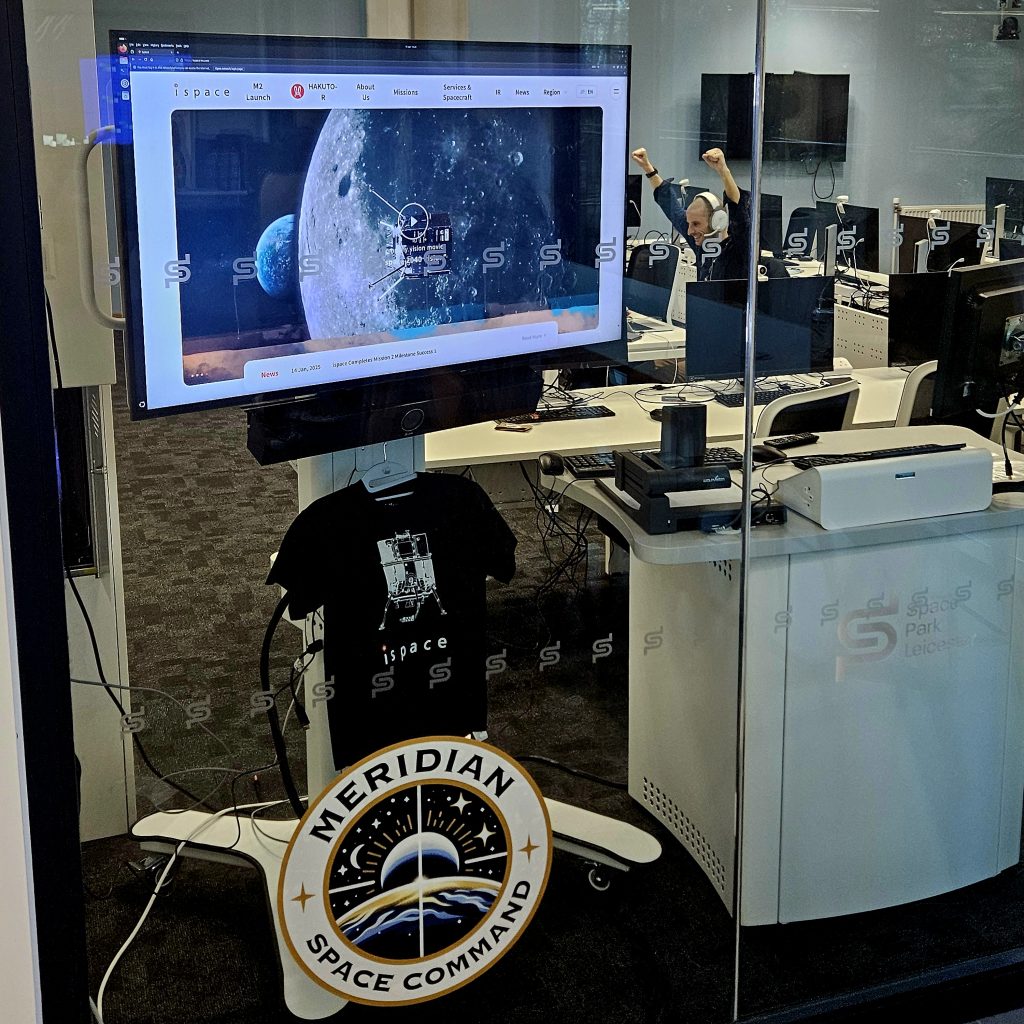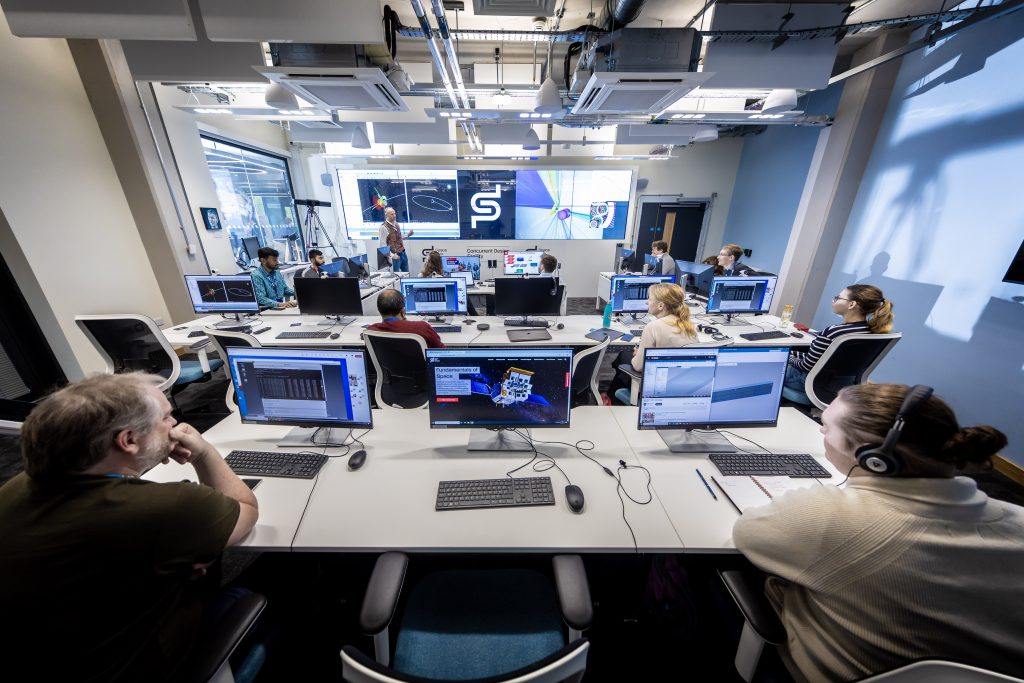Space Park Leicester enables UK support of ispace’s historic Lunar Lander Mission

Space Park Leicester is celebrating a groundbreaking milestone this week as its partner, ispace, successfully launches a lunar lander as part of its Resilience mission to the Moon.
This mission represents a major step forward in humanity’s exploration beyond Earth and showcases the pivotal role of the UK in supporting international space endeavours.
Dr Sam Richards, Director of Meridian Space Command and operating out of Space Park Leicester, the University of Leicester’s pioneering £100 million science and innovation park, has played a critical role in the launch, which took place at Cape Canaveral onboard a SpaceX Falcon 9 rocket.
Leveraging the state-of-the-art Concurrent Design Facility (CDF) at Space Park Leicester, Dr Richards has been directly involved in supporting the mission’s operations and the Launch & Early Orbit Phase (LEOP) of the spacecraft.
He said: “It is an incredible honour to continue support of ispace’s pioneering missions to the Moon and contribute to the next chapter of humanity’s exploration beyond Earth.
“I am deeply grateful to Space Park Leicester for granting us access to their state-of-the-art Mission Control Center, which has been instrumental in our support of complex operations.
“Together, we are pushing the boundaries of innovation and shaping the future of space exploration.”
This event marks the inaugural use of Space Park Leicester’s Concurrent Design Facility for direct mission operations. The CDF, a cutting-edge hub for space mission planning and operations, has proven its capability to support complex missions, demonstrating the UK’s growing prominence in global space activities.
From contributing advanced technology and expertise to international missions, to fostering collaborations with pioneering companies like ispace, the UK is at the forefront of space innovation.
In May last year, ispace, a global lunar exploration company, and the University of Leicester, agreed to collaborate on approaches to lunar night survivability for future ispace lunar lander and rover missions.
The University and ispace entered into a strategic consulting agreement to explore lunar night survivability utilising Radioisotope Heater Units on the Series 3 lunar lander and rovers.
The University was awarded funding under Phase I and Phase II of the UK International Bilateral Fund to create mission concepts leveraging the technology on future missions.
Their work with the University of Leicester to transport UK technologies to the Moon and test their effectiveness against the lunar night is another example of the ispace’s unique capability.
ispace’s current mission builds on the successes of its previous milestones, including the historic first privately funded lunar lander launched in December 2022.
These missions pave the way for sustainable lunar development and establish key foundations for future exploration.
State-of-the-art Facility
Offering access to advanced facilities, expert personnel, and a collaborative ecosystem, Space Park Leicester is dedicated to enabling both private and public sector space initiatives.

Professor Nigel Bannister, Deputy Director of Space Park Leicester, added: “This mission exemplifies how Space Park Leicester bridges innovation and application in space exploration.
“We’re thrilled to have supported ispace’s ambitious lunar mission and look forward to empowering more groundbreaking projects in the future.”
Explore Space Park Leicester services and facilities at: www.space-park.co.uk/services
Main image: Dr. Sam Richards celebrating the successful launch of the Resilience mission from inside the Concurrent Design Facility at Space Park Leicester


